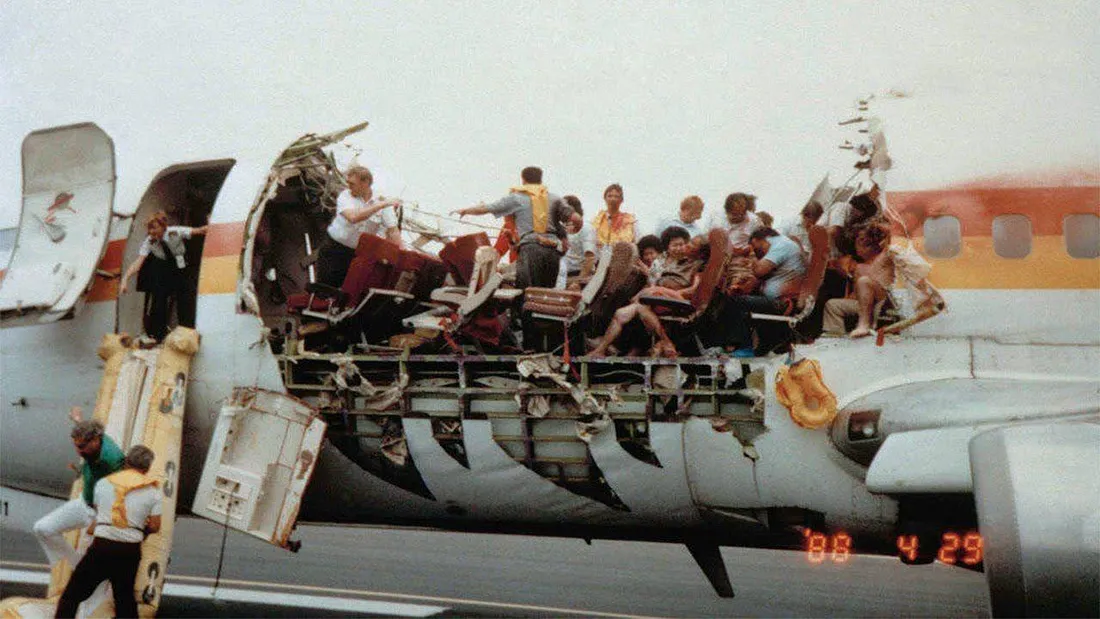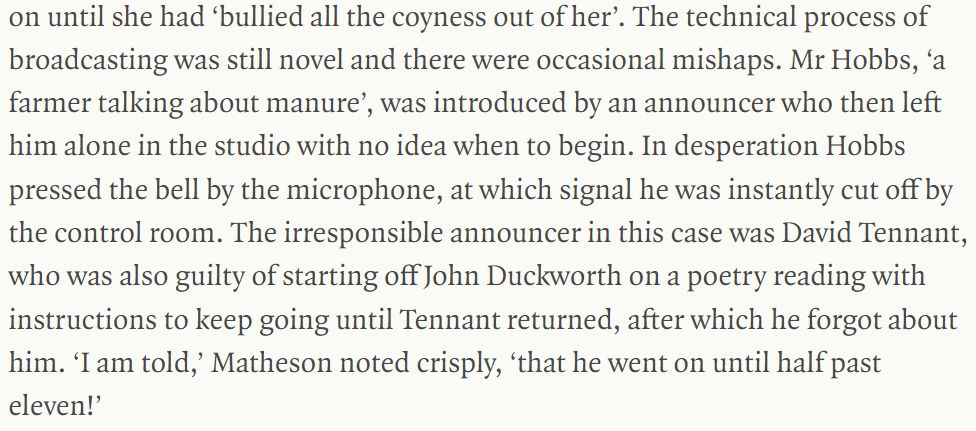What am I up to now?
February 18, 2026
February, 2024
Contents
Updates
We’re hiring! My co-PIs and I are hiring a research coordinator to run an RCT in The Gambia. This is a full-time role, living in Kanifing, on the Atlantic coast, with an 18 month time commitment.
I’ve had a job like this: before starting my PhD, I worked in Sierra Leone for a year on RCTs run by European and American academics. I wasn’t great at this job, but I learned dense lessons about how development research is produced — lessons which have been useful as I’ve become more involved with designing and organizing such projects. It’s a great way to see the process from the inside, get to know an interesting new country, and prepare for your own research career.
Of course, the implicit deal here is that, in addition to learning how development research works, you’ll get letters of recommendation for doctoral programs. My reference (as a second year PhD student) is worthless, but my coauthors Victor and Justine are actual, legitimate economists. I’ve been working with Victor for a year now, and learn a lot from him!
Otherwise, life progresses. I’ll be in Mexico City next month with MWG and my sister Abigail. This will involve lots of good food, hot chocolate, music, mountains, and people. If you’re in town and not likely to stop by Oxford or London soon, please reach out!
Reading
Here, Richard McGuire
The most remarkable art project I’ve seen in the past year. Simple in concept — a graphic novel with a constant reference frame in a 20th century suburban living room, showing snapshots of time non-linearly — McGuire created something amiable, cosmopolitan, and devastating. There is a decipherable plot, but it’s not worth your time to decipher it; it may be actively detrimental. The only consistent character is the corner of the room, with all the pointless dramas and shattering silences. Cats nap in the corner. Men die. Benjamin Franklin shows up, at one point, and later (or earlier?) a kid dresses as him for Halloween.
I viewed it as a PDF in Chrome, two page view, presentation mode, so that when you tab to the next page, the reference frame remains consistent. I would love to own this as a physical book, but the digital option is perfectly hypnotic.
Admiral Cloudberg
Admiral CloudbergNomen verum Kyra Dempsey has published a blog post about a different plane crash every week for the past five years. I came across her work in the most recent Asterisk, and read more than a hundred of her articles in the last week of January.Roughly the length of the first four Harry Potter books together. It was not a productive week.
Part of the fascination is the disaster porn — Cloudberg generously breaks up her 10,000 word essays with photos of wreckage every few paragraphs — but the competence porn is more compelling. The heroes are the crash investigators, most often and famously in “NTSB”-emblazoned windbreakers, though Cloudberg covers plenty of overseas crashes too.Five of her last ten posts have been about plane crashes in the US. But the NTSB is often invited to lead or assist investigations overseas, and makes surprising cameos on every continent.
Cloudberg’s loyalty is to the process: individual investigators are rarely named,The only investigator I recall being named more than once is the Kiwi Ron Chippindale, and that’s an ignominious honor. and the her posts spend many more words detailing the investigation, technical causes of the accident,I now know so much about de-icing processes. and recommendations to prevent future incidents than the disaster itself.
Her writing reminds me of no one so much as Matt Levine. I don’t care about the crash of two seaplanes in Alaska any more or less than I care about Indian edtech rights offerings. But both try to make clear vital, complex, and often opaque systems which people trust implicitly. High finance and air travel both function perfectly to four nines, and fail softly to another two nines, but the insights come from looking at the tail where the system breaks down.
Air disasters provide insights about the portability of complex systems. Air travel is so safe because it’s so complex. It’s also international — planes cross borders, so the system most work as well in Russia as it does in Antarctica as it does in Texas as it does over the Indian Ocean.
Take collision avoidance. From the dawn of American airliners to to the 1970s, American passenger planes collided mid-air on average once every 18 months. Today, have become much rarer. First, computers plot routes more precisely,Perhaps too precisely. Modern crashes are ‘a marvel of engineering — beginning hundreds of kilometers apart, two aircraft, both on autopilot, [are] able to adhere so closely to an imaginary airway at such a precise barometric altitude that they plowed directly into one another, like two speeding bullets meeting in midair. Forty or fifty years ago, such a collision would have been highly improbable, simply because lateral and vertical navigation equipment lacked the required accuracy. Perhaps 99 times out of 100, the two planes would have sailed past each other at 100 or 200 meters’ distance, unaware of the other’s presence.’ This is about the most recent in-air collision between passenger jets. placing airliners at different altitudes and paths before they ever take off. Then, the same computers and modern radar can warn controllers if any planes come close to each other. And then, as an ultimate backup if controllers fail, modern jets have traffic collision avoidance systems (TCAS, pronounced tee-cas), which warns pilots of both planes of impending collisions, automatically ordering one plane in one direction, and the other in the opposite.
This system works very well when everyone follows the rules. But in the 2002 Überlingen mid-air collision, the same system imported to different cultures caused a disaster. A jet chartered from a Russian airline was accidentally placed on a collision course with a DHL cargo plane running behind schedule, and the relevant controller didn’t notice it until late, due to ATC system maintenance. The controller eventually noticed, and ordered the Russian jet to descend, but TCAS noticed the imminent collision at the same moment, ordering the Russian plane to ascend.
As it was conceived in America, TCAS is a last line of defense, a surefire way to prevent a collision if the principles of air traffic control and “see and avoid” should prove inadequate. As such, there is no circumstance under which a TCAS resolution advisory should be disregarded, as its very activation implies that other means of collision avoidance have already failed.
But in Russia, “controllers wielded a level of absolute authority that they never held in the West,” and the pilots, hearing contradictory instructions, chose to follow the human controller and descend — directly into the DHL plane, which TCAS had ordered to descend.TCAS is smart enough to give the pilots of the converging planes opposite instructions. Seventy-one people died. The system would have worked in either cultural milieu — but where they crossed, the backup to the backup failed, and tragedy was finally inevitable.
And sometimes these systems are imported to places where they cannot operate at all. The two dumbest, most insane crashes Cloudberg wrote about both happened in Africa: the overloaded UTAGE flight 141 failing to get off the runway in Cotonou, and RwandAir flight 205 crashing into the terminal (on the ground) for no good reason. I don’t have much to say about these, except that the first was a tragedy I cannot imagine occurring anywhere except West Africa, and the second was an epic brain fart. But culture is evident on airplanes. I’ve never seen a more orderly disembarkation than landing in CDMX, nor a more chaotic one than Kabul.
After reading fifty-odd articles about plane crashes, I began to worry that I could give myself a fear of flying. As I come to the end of her archives, I think Cloudberg has had the opposite effect. Air disasters are arbitrary and horrific, but reading about them illustrates how particular the causes are. So rarely are two crashes caused by the same thing — because we plug those gaps as quickly as we canThe caveats to this are that it often takes a fatal accident to plug a gap, and the plug is rarely immediate. — that as we move forward in time, the causes of crashes become even more particular.
Consider SmartLynx Estonia flight 9001. This flight was doing something that a plane will never do while I’m aboard — dozens of touch-and-go landings for training new pilots on the A320.The A320 was the first fly-by-wire airliner, a technology that was controversial among pilots, for restricting their piloting envelope, and among potential passengers for one of the most cinematic crashes in history. The combination of a slightly-too-viscous lubricant on a set of microswitches with a very unusual flight profile (dozens of landings in a single flight) caused the computer systems controlling the flight surfaces to shut down. I say “computer systems” because “to lose control over the elevators, four computers must fail at the same time.” And yet, this did happen. And yet, the A320 did not crash: the pilots recovered manual control.
Four flight control computers failed consecutively, both engines quit, and electrical power was lost. And yet, even after so many things went wrong, there were still more backup systems. The A320 was designed to be flyable using only the mechanical backups […] in the event of the complete failure of all its computers.
In the aftermath, the government investigators, Airbus, and the airline made changes to make sure that this particular failure could never happen again. Training procedures were updated, maintenance logging changed, and manuals were edited. It’s humbling — we optimize, backup, and reinforce systems, but disaster sneaks through. The pilots deal with it the best they can, and the investigators make sure it never happens again.

Matt Lakeman’s West Africa series
Matt Lakeman’s West Africa series has come to a close, with an addendum on all of the countries which didn’t get their own post. I don’t remember reading all of his country posts, but as a friend pointed out, I’ve linked to them before!
Lakeman spends a good amount of time talking about how “money, in general and in all forms and uses, is a huge pain in the ass in West Africa.” Having carried duffel bags of cash from village to village in rural Sierra Leone, I sympathize. Hearing about his experiences, I’m annoyed I’ve never spent any time in a CFA country. It sounds like heaven compared to Sierra Leone and The Gambia. Lakeman trying to sell Leones for USD made me laugh.
While Lakeman and I have had really different West african experiences, some things track. I’ve used his answer about whether I ever felt unsafe:
West African people are really, really, super-duper nice. I’m not saying there are no West African criminals, but I’ve already documented a few instances of locals going to heroic lengths to protect me. I genuinely felt a bit safer because if anything bad did happen to me, I’m confident that locals would stand up for me and help me out.
And I entirely agree about the French:
French Africa seems more French than British Africa seems British. […] Yeah, France talks a big game about being a benevolent partner and helping former colonies, but really it just wants to maintain informal control over its colonies and is willing to screw over the local African populations to do so. Allegedly.
And Sierra Leone:
Sierra Leonese people talk REALLY LOUDLY and ARGUE A LOT ABOUT EVERYTHING.
[…]
Freetown, Sierra Leone’s capital, is my second favorite city in West Africa, and IMO the most beautiful. City planning pro-tip – if you want to make a city pretty, just add hills. Sierra Leone looks like a generic large African city except it’s built on a series of hills which gives it a Brazilian favela vibe. And it’s beautiful. Really, truly stunning, especially from the hilltops. Best city to explore on foot in West Africa, by far.
His China takes are boringly good, too, but I’ll note most of the cheap motorbikes in West Africa are Indian, not Chinese!
Great travel writing! I’m looking forward to wherever he goes next.
Links
These are various interesting or fun things I’ve found on the internet this month.
The Nigerian Mace heist was a pretty boring West African political drama, but it did provide great pictures.

The US eradicated malaria by 1950, and much credit goes to New Deal agencies, including the TVA. But the TVA may also have made malaria worse. Using my favorite instrumental variable ever,The Duflo and Pande dam approach, also one of my favorite one-word paper titles. Carl Kitchens found that the TVAs dams and resevoirs actually increased malaria mortality and morbidity.
I find that the net effect of the TVA was to increase malaria rates following its construction [of dams]. Using statistical life value estimates, I find that the hidden malaria cost of the TVA offset 24 percent of the fiscal stimulus multiplier generated by the TVA.
Here’s a collection of graffiti from the 1968 protests in Paris.
Gilda, I love you! Down with work!
Comrades, people are making love in the Poli Sci classrooms, not only in the fields.
SEX: It’s okay, says Mao, as long as you don’t do it too often.
If God existed it would be necessary to abolish him.
The student’s susceptibility to recruitment as a militant for any cause is a sufficient demonstration of his real impotence. (enragé women)
Form dream committees.
Those who talk about revolution and class struggle without referring to everyday reality have a corpse in their mouth.
Why had no one told me about the c.100 CE parody of the Iliad about a war between mice and frogs, watched by the gods? The Batrachomyomachia, literally “Battle of the Frogs and Mice.” Full text here, a 15 minute read.
Huge progress on reducing lead poisoning in Africa. I remember talking about the chances of the US government making this a priority a couple years ago with folks at LEEP and OPP, and no one was optimistic. Big win from Administrator Power.
I want to find out more about this BBC announcer from the early 1930s:

but “david tennant bbc” is ungoogleable.
I’m sure everyone else already knows about Glenn Burke, the baseball player who is known for a) being gay and b) inventing the high five with Dusty Baker.
This was a nice essay , on Orwell and India. The author mentions “a wildly entertaining 1984 essay called In Search of a Jaarj Arwil;” can anyone find this for me? I’ve looked high and low; $20 bounty.
Previously
…